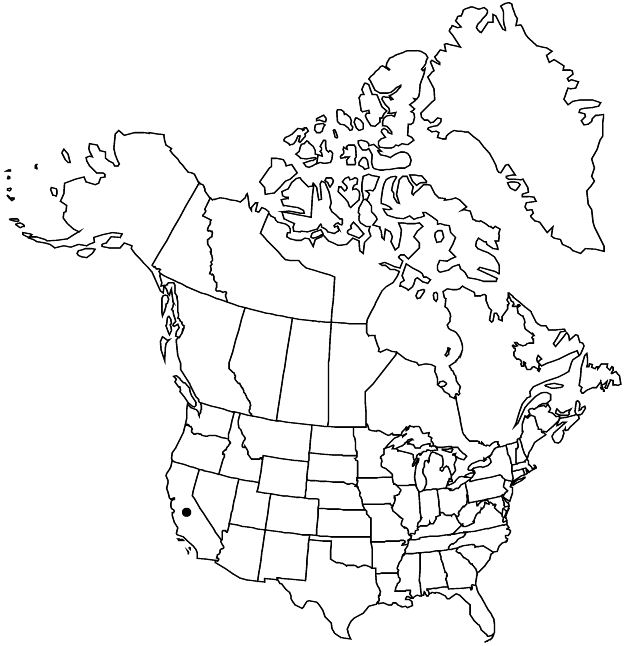Difference between revisions of "Ceanothus megacarpus var. megacarpus"
Endemic
Treatment appears in FNA Volume 12. Treatment on page 98.
FNA>Volume Importer |
FNA>Volume Importer |
||
| Line 46: | Line 46: | ||
|publication year= | |publication year= | ||
|special status=Endemic | |special status=Endemic | ||
| − | |source xml=https://jpend@bitbucket.org/aafc-mbb/fna-data-curation.git/src/ | + | |source xml=https://jpend@bitbucket.org/aafc-mbb/fna-data-curation.git/src/f50eec43f223ca0e34566be0b046453a0960e173/coarse_grained_fna_xml/V12/V12_998.xml |
|genus=Ceanothus | |genus=Ceanothus | ||
|subgenus=Ceanothus subg. Cerastes | |subgenus=Ceanothus subg. Cerastes | ||
Revision as of 19:57, 16 December 2019
Leaves mostly alternate; petiole 1–3 mm; blade oval, elliptic, or oblanceolate, 10–25(–33) × 5–19 mm. Capsule: valves rugulose to weakly ridged near apex; horns prominent.
Phenology: Flowering Nov–Apr.
Habitat: Rocky slopes, canyons, chaparral.
Elevation: 10–900 m.
Discussion
Variety megacarpus occurs on coastal slopes of mountains from Santa Barbara County south to San Diego County, and at isolated localities on several California Channel Islands.
Selected References
None.
Lower Taxa
None.
